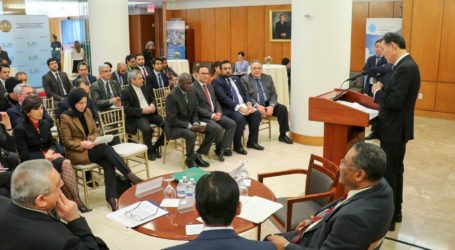ROHINGYA MUSLIMS FACE HUMANITARIAN CRISIS: RIGHTS GROUP

The New York based rights group said the government should permit unfettered access to humanitarian agencies to provide assistance to Muslim populations, end segregated areas, and put forward a plan for those displaced to return to their homes, according to Human Rights Watch (HRW) reports monitored by Mi’raj News Agency (MINA).
“Burmese government restrictions on aid to Rohingya Muslims are creating a humanitarian crisis that will become a disaster when the rainy season arrives,” said Phil Robertson, deputy Asia director at Human Rights Watch. “Instead of addressing the problem, Burma’s leaders seem intent on keeping the Rohingya segregated in camps rather than planning for them to return to their homes.”
Tens of thousands of Rohingya still lack adequate humanitarian aid – leading to an unknown number of preventable deaths – in isolated, squalid displacement camps. Government security forces guarding the camps do not permit the residents to leave the camps, which has a devastating effect on their livelihoods, Human Rights Watch said.
On March 20, President Thein Sein’s spokesman, Ye Htut, rejected warnings about the severe humanitarian conditions for displaced Rohingya, telling Australia Network’s Newswire, “they have enough shelter and food supply for the rainy season.”
Meanwhile, the European Commission on March 18 warned the situation would turn into a “humanitarian disaster” if the internally displaced people living on paddy fields and sand banks were not relocated to safer sites within weeks. The United Nations Office for the Coordination of Humanitarian Affairs (OCHA) likewise warned of a “potentially devastating” effect on displaced Rohingya when the rains start.
Arakan State’s Rohingya population also faces widespread hostility from the majority Burmese Buddhist society. The violence in Arakan State in June between Arakanese Buddhists and Rohingya Muslims was followed by planned attacks on Rohingya and Kaman Muslim communities in various townships in the state in October.
More recently, disputes between Buddhists and Muslims resulted in violence in the central Burma town of Meikhtila on March 20 to 22, which has spread to other parts of the country. During the violence, at least five mosques were burned down and an unknown number of people died as mobs and Buddhist monks attacked Muslim residents and set fire to Muslim homes, businesses, and places of worship. The violence in Meikhtila has displaced 12,000 Muslims, according to OCHA. At least five mosques were set fire during the violence. (T/P01/P03)
Mi’raj News Agency (MINA)




